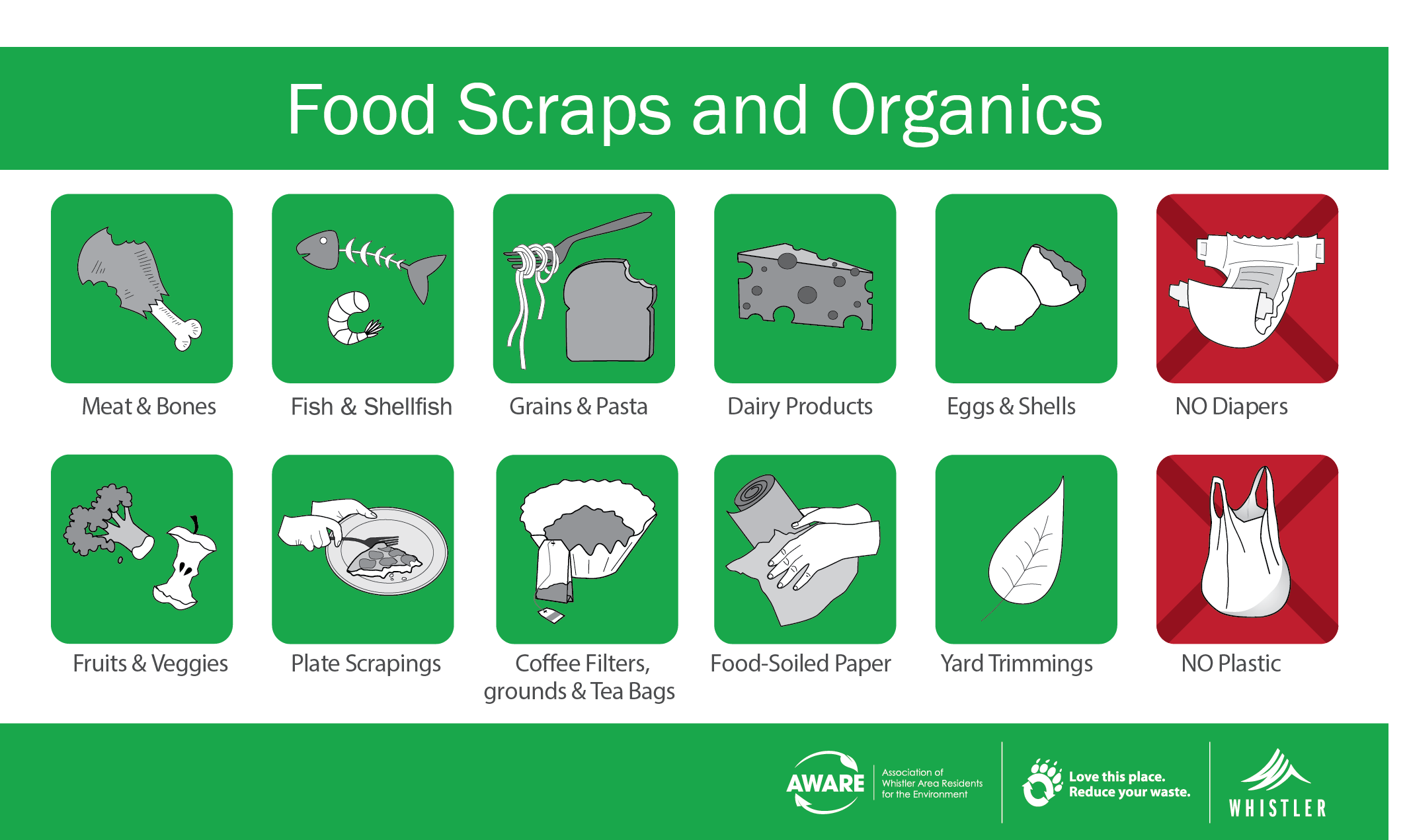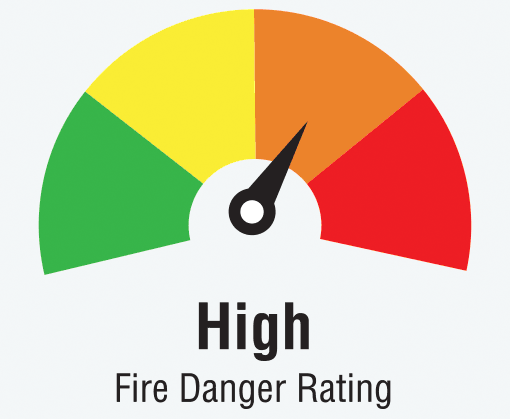Yard waste bins at waste transfer stations
Yard waste bins have been installed at both Function Junction and Nesters Waste Transfer Stations, starting Friday, April 12 and running through the summer.
Yard waste tip: While your “messy” garden or lawn may be calling to you as the weather warms, please consider delaying your outdoor clean-up until late spring. This layer protects overwintering wildlife and can protect young plans from early spring frosts.
Food and yard waste isn’t garbage
About a third of an average household’s garbage is food.
When food and yard waste end up in the landfill, they generate methane – a greenhouse gas 20 times more potent than carbon dioxide.
Composting food scraps, yard waste and other organic material like napkins, tea bags, coffee grinds and house plants is important. It reduces the amount of garbage we produce, reduces greenhouse gases and creates compost for local gardens and farms.
Reduce
Use the Love Food Hate Waste resource for easy solutions like meal planning, learning to properly store your food so it lasts longer and tips to use up leftovers.
Where to drop off compost and yard waste
Household compost can be dropped off at both of Whistler’s waste depots year-round. Yard waste can be dropped off at the Function Junction and Nesters depot in the specific bin from April to November. The yard waste bin is removed once there is snow in the valley and the removal date will be announced in the advisories section. Learn more about Whistler’s waste depots.
Commercial and strata properties have separate regulations around compost, recycling and landfill waste collection.
Likewise, commercial landscapers must drop off yard waste at the Waste Transfer Station in the Callaghan Valley.
The Resort Municipality of Whistler also offers a free FireSmart community chipper program for woody debris in the summer months. Learn more.

This infographic can help you identify what can be composted at Whistler’s waste depots. You can also download a Compost Guide.
Items that can be composted:
- All food including meat, fish, shellfish, grains, pasta, dairy, eggs, fruits and vegetables.
- Egg shells and bones.
- Small amounts of fat, oil and grease.
- Coffee filters, grounds and tea bags.
- Food soiled paper.
Items that should not be composted include diapers and plastic. Use only certified compostable containers and bags or create an organic origami food waste bin liner.
Yard waste must be disposed in the specific bin at both the Function Junction and Nesters waste depots or through the FireSmart community chipper day services. Burning yard waste is not allowed in Whistler.
Accepted:
- Grass, leaves, branches (up to 10 cm in diameter) and twigs
- Weeds, flowers and house plants (no pots) with dirt shaken off
- Minimal dirt or sand
Not accepted:
- Dirt and gravel
- Rocks
- Plastic bags
- Paving stone or concrete
- Wood with paint or glue
- Plywood or fiberboard
The following materials must be brought directly to the Waste Transfer Station:
- Large volumes of sawdust, woodchips, and shavings
- Large amounts of yard waste
- Clean wood waste
- Commercial compost
Invasive species should not be composted. Improper disposal of invasive species can lead to further spread of invasives in the Sea to Sky as many plant parts can withstand the composting process. The Sea to Sky Invasive Species Council has a complete list of all invasive species.
Residents can dispose of a small amount invasive species in landfill waste. Plants should be bagged and sealed.
Businesses must dispose of invasive species at the Waste Transfer Station. Plants should be bagged and labelled “invasive”. Tipping fees apply.
For more information on invasive plants, please read the Invasive Plant Disposal Protocol or visit the Sea to Sky Invasive Species Council.
Backyard composting
While it is possible to have a backyard compost bin, backyard composting in Whistler requires vigilance since composting can attract bears. This puts you and bears at risk. You can also be fined for not managing attractants properly, according to Whistler’s solid waste bylaw.
To avoid attracting bears to a backyard compost bin, do not compost meat, fish, bones, grain, dairy, bread, anything that’s oily or any other bear attractants.
You must also:
- Maintain a healthy compost bin to prevent odours that attract bears. This means using equal proportions of brown materials (fallen leaves, straw, sawdust, newspaper, paper towel, cardboard, dry grass clippings) and green materials (fruit and vegetable scraps, coffee grounds, fresh grass clippings).
- Cover kitchen scraps with brown material every time you add them to your compost bin.
- Aerate your compost to encourage oxygen-loving bacteria that break down compost and reduce odours.
- Bury fruit or any other odourous greens under at least a foot of soil.
Contact
RMOW Infrastructure Services
604-935-8190
zerowaste@whistler.ca

